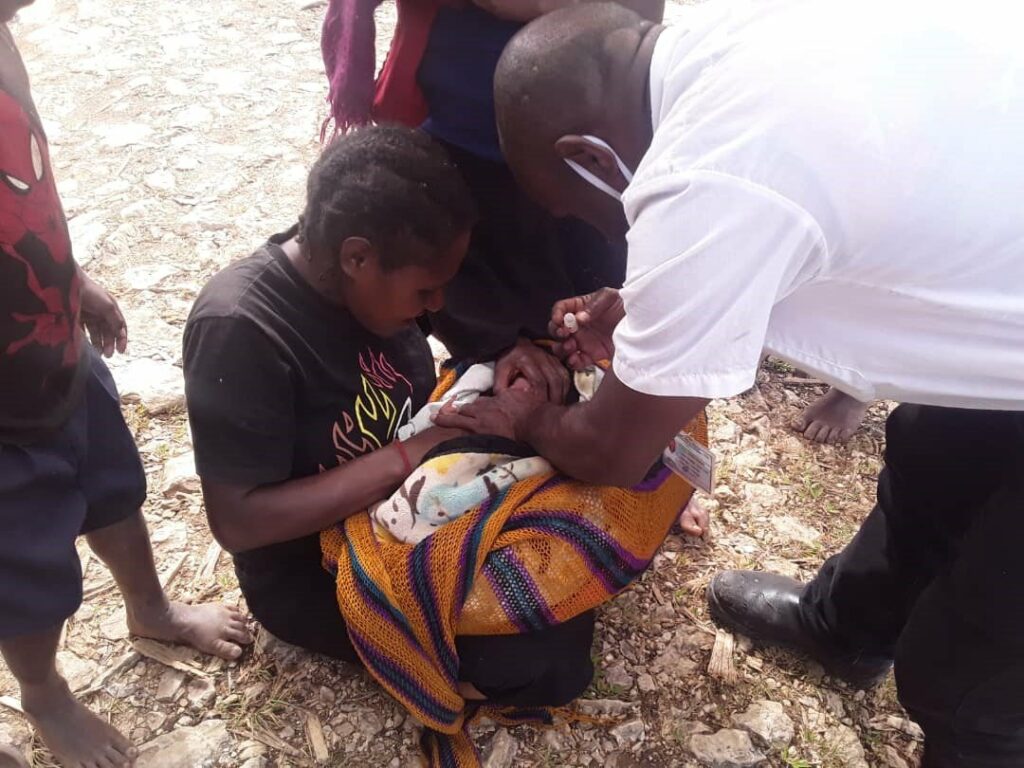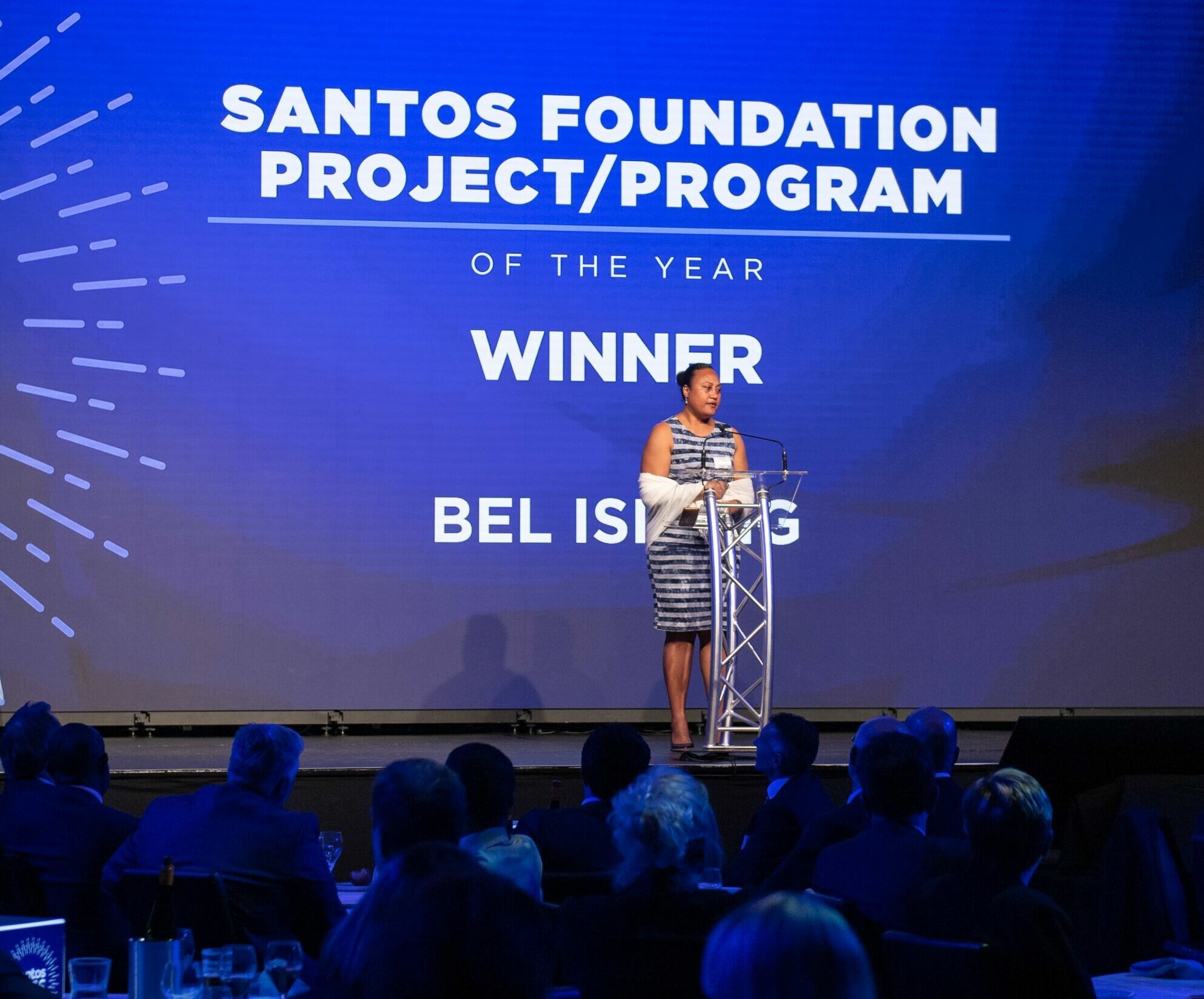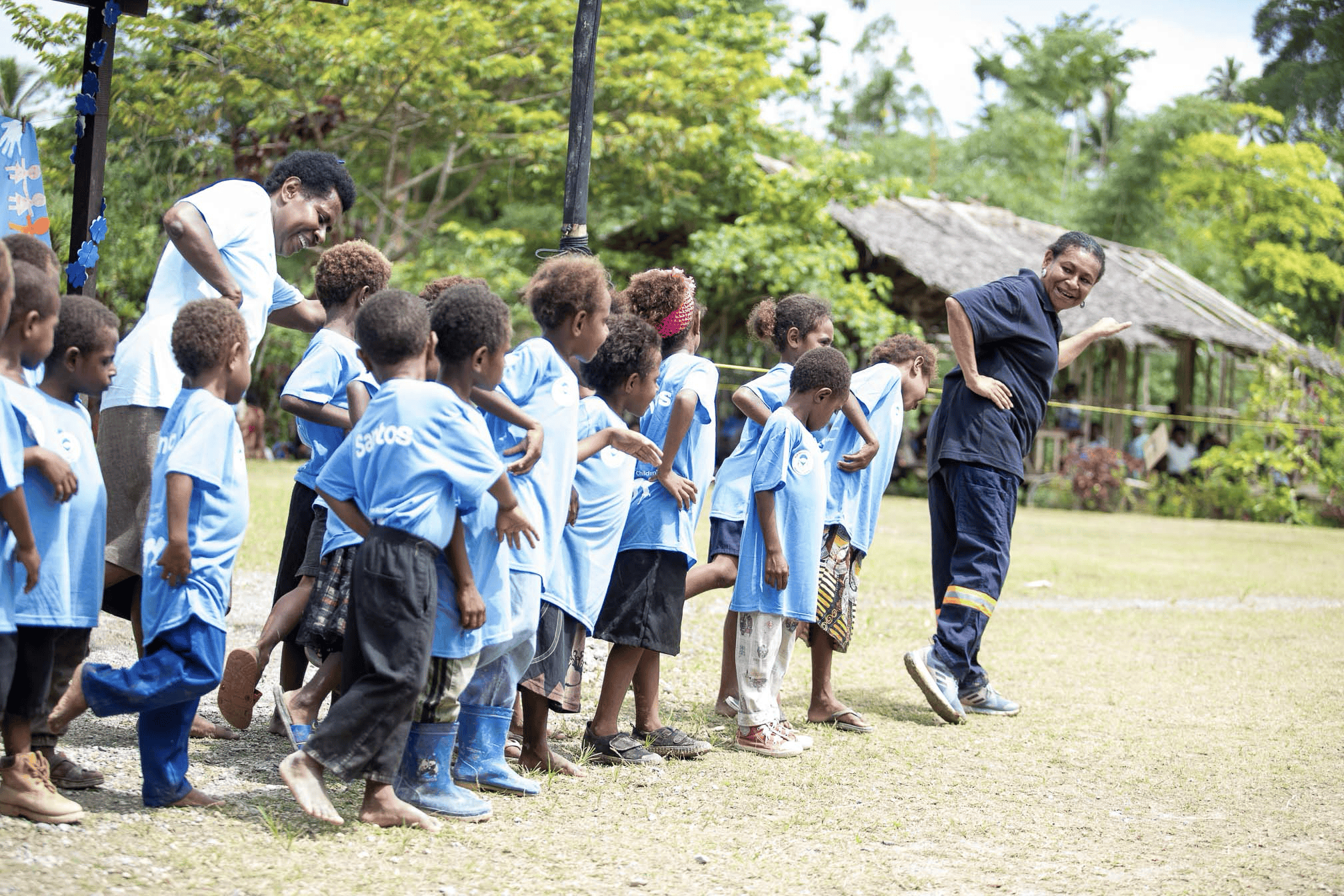
Almost 60,000 routine vaccination doses have been administered to children in Gulf Province over the last two years, protecting them and their communities against a range of vaccine-preventable diseases.
The encouraging results were identified by the Gulf Provincial Health Authority (PHA) and the Oil Search Foundation (OSF) at a recent health facilities review, which included health managers and officers-in-charge of districts and rural sub-health centres.
The Gulf PHA has made steady progress since the Accelerated Immunisation and Health System Strengthening project (AIHSS), which commenced in November 2019 to increase immunisation coverage across the country.
AIHSS is a PNG Government initiative supported by the Australia Government, the Government of New Zealand and Gavi, the Vaccine Alliance. The project receives technical assistance from the World Health Organization and UNICEF and is delivered in Gulf by the PHA with the support of OSF.
The project takes routine childhood immunisation direct to remote communities to increase protection against vaccine-preventable diseases, like whooping cough, diphtheria, influenza and measles.
The review workshop was coordinated by Gulf PHA officers with OSF support and provided an opportunity to exchange ideas and collaborate on the development of a new immunisation coverage strategy.
“The workshop motivated the officers and provided the impression that we can and will achieve well beyond the agreed indicators for immunisation and other programs,” said lead coordinator Luke Wilet.
Gulf PHA information officer Greg Damien said the workshop focused on improving supervisory visits to health facilities, which are key to monitoring performance and adjusting immunisation outreach programs.
“The AIHSS review meeting was a success,” Mr Damien said. “We were able to bring all our officers to this event and assist them by answering a lot of queries affecting them and their workplace.”
The review resulted in updated health facility plans which are used by Gulf PHA to address funding for outreach clinics and patrols into remote locations.
Ten facilities with high catchment populations now have approved funding for plan implementation.



